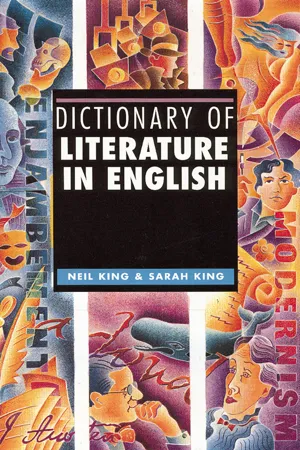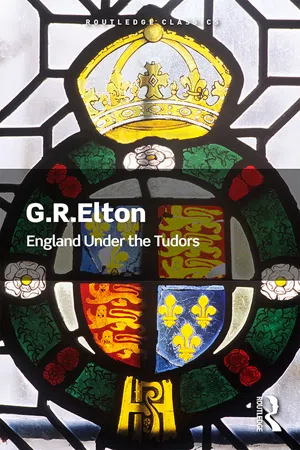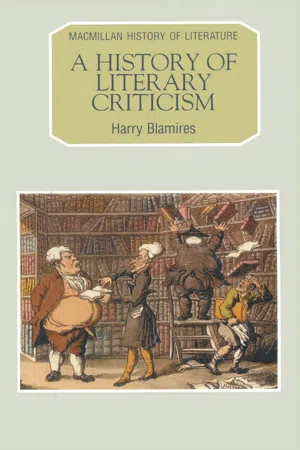Jacobean Age
The Jacobean Age refers to the period in English history and literature during the reign of King James I (1603-1625). It was a time of significant cultural and artistic achievement, marked by the flourishing of dramatic works, including the plays of William Shakespeare and other renowned playwrights such as Ben Jonson and John Webster. The literature of this era often reflected the social and political complexities of the time.
4 Key excerpts on "Jacobean Age"
- eBook - ePub
- Neil King, Sarah King(Authors)
- 2019(Publication Date)
- Routledge(Publisher)
...J Jacobean Age generally considered to cover literature written in England during the reign of James I (1603-25). Jacobean drama covers plays written during the reign of James I; however, the period 1558-1642 is sometimes covered by the overall term Elizabethan drama. Jacobson, Dan (b.1929) South African-born British novelist and short, story writer. Much of his writing explores aspects of being a South African or living in South Africa. Notable works include B EGGAR M Y N EIGHBOUR (1964), H ER S TORY (1987). James, C.L.R. (1901–89) Trinidadian novelist, political essayist, and literary critic. His work is regarded as documentary and socialist realist, and as part of the anticolonial feeling that became evident during the 1930s and 1940s. Notable works include T RIUMPH (1929) and M INTY A LLEY (1936), which had a considerable influence upon Caribbean fiction. James, Henry (1843–1916) American-bom British novelist, short story and travel writer, critic, essayist, and playwright. He was influenced by his friendship with Howells, and later by his growing knowledge of continental European literature. In 1876 he setded in England, and in his early novels such as T HE P ORTRAIT OF A L ADY (1881) he often observes and studies experiences of Americans among Europeans, subtly comparing the New World values of the former with die older civilization of the latter. For W ASHINGTON S QUARE (1880) and T HE B OSTONIANS (1886) he reverted to an American setting, and for works such as T HE A SPERN P APERS (1888) he adopted what he called his "international theme." Other notable works include W HAT M AISIE K NEW (1897), T HE T URN OF THE S CREW (1898), T HE W INGS OF THE D OVE (1902), T HE A MBASSADORS (1903), T HE G OLDEN B OWL (1904). James, P.D. (b.1920) : English crime writer...
- eBook - ePub
English Literature
A Student Guide
- Martin Stephen(Author)
- 2013(Publication Date)
- Routledge(Publisher)
...CHAPTER EIGHT Elizabethan and Jacobean drama The literary and historical background No one has ever really explained why the thirty years from 1580 to 1610 saw one of the greatest flowerings that has ever taken place in English literary history, and probably in the history of world literature. Shakespeare, dealt with in the following chapter, was only part of this literary and dramatic boom, and perhaps not even the most highly thought-of by the age in which he lived. As with any intense flowering of literature, the reasons are historical, political, social, and economic, as well as literary. It is tempting to see a link between great outbursts of creativity in literature and social upheaval. English society in the Jacobean period had to come to terms with the Renaissance (the end of medieval thinking in Europe), the end of Queen Elizabeth I’s reign and the accession of a Scottish King (James VI of Scotland) to the throne of England, as James I, as well as the aftermath of its own battle with the Roman Catholic Church. As far as the Elizabethan and Jacobean period goes the flowering in the theatre was brought to an abrupt end by the English Civil War in 1642, when theatres were closed. They remained closed until 1660 and the restoration of the monarchy under Charles II. However, signs of decadence in the theatre had been visible much earlier than 1642, possibly even as early as 1615; certainly from the mid-1620s drama seemed to have little new to offer. The Theatre The Elizabethan and Jacobean theatre was the first fully professional theatre in England, in the sense of professional actors performing in purpose-built theatres. There certainly had been acting before, with a religious and a secular input from the medieval mystery, morality, and miracle plays, and wandering troupes of performers putting on acts with no religious content. A favourite place for performing any travelling theatre or entertainment was the yard of an inn...
- eBook - ePub
- G.R. Elton(Author)
- 2018(Publication Date)
- Routledge(Publisher)
...In the reign of Elizabeth, England reached the highest concentration of musical genius in all her history and led Europe in this field. 3. Literature Any attempt to summarise here the work of the writers, poets, and dramatists who made of the sixteenth century one of the few really great periods of literature must obviously be hopeless. It was in language and its use that the English Renaissance mainly expressed itself. The visual arts played little part in it; music recorded astonishing achievements but for technical reasons remained a restricted expression of the age; in poetry, on the other hand, no more remarkable work has ever been done. Within the short space of some sixty years, and thanks to the labours of a few men of genius and many men of unusual talent, the English language shed the awkwardness and insufficiency which clung to it and became the flexible and all-competent instrument of an incomparable out-pouring. The greatest of all poets (perhaps in any language) was part of that band, but others beside Shakespeare added their efforts—more than can be listed here. Another difficulty is raised by the fact that the death of Queen Elizabeth marked a date of no importance in this story. There are differences between the Elizabethans and Jacobeans, but the significant years are really 1580–1630. Yet we cannot include here the whole reign of James I. As far as possible we shall therefore confine ourselves to work done before Elizabeth died and to men who were prominent before 1603, taking three subjects in turn—prose, lyrical poetry, and the drama. Prose has always been later to reach perfection than poetry because poetic language is always the first to undergo the discipline of literary treatment. The age of Elizabeth is no exception...
- eBook - ePub
- Harry Blamires(Author)
- 1991(Publication Date)
- Bloomsbury Academic(Publisher)
...The reigns of George I (1714–27) and George II (1727–60) saw successively George Frideric Handel’s (1685–1759) prolific output of opera in the 1720s and 1730s and of oratorio in the 1740s. In the literary field the development of periodical journalism gave a new outlet for writers and soon provided a platform for literary criticism. The Tatler was launched in 1709 and the Spectator in 1711. At the same time clubs and coffee-houses increasingly provided centres of talk and sociability for those interested in politics or literature. The use of the term ‘Augustan Age’ to identify the period implies that in English literary history it has the kind of distinction which Virgil, Horace and Ovid gave to the reign of the Emperor Augustus. Certainly Pope, Addison and Swift were keen admirers of the classical writers, and when they translated or imitated their great predecessors, they seemed to claim a parallelism of purpose and stature. It is not surprising that in the new century the development of the genre of literary criticism gathers pace. In the seventeenth century much of the critical output fastened on topical issues arising out of current publications. Gradually, as we saw in the work of Dryden and Dennis, a more comprehensive concern with the function of literature emerged, and critics began to reflect self-consciously on the criteria and techniques of criticism. The literary critic as a figure in his own right begins to disentangle himself from the surrounding company of poets and dramatists jostling to defend themselves and attack their rivals. I Joseph Addison Joseph Addison (1672–1719) thus made a conscious effort to produce prescriptive essays laying down lines of guidance which might both clarify controversy and aid composition. He was not, however, a professional writer like Dryden, but a man who pursued a political career as a Whig, holding various posts. Writing was a side-line...



